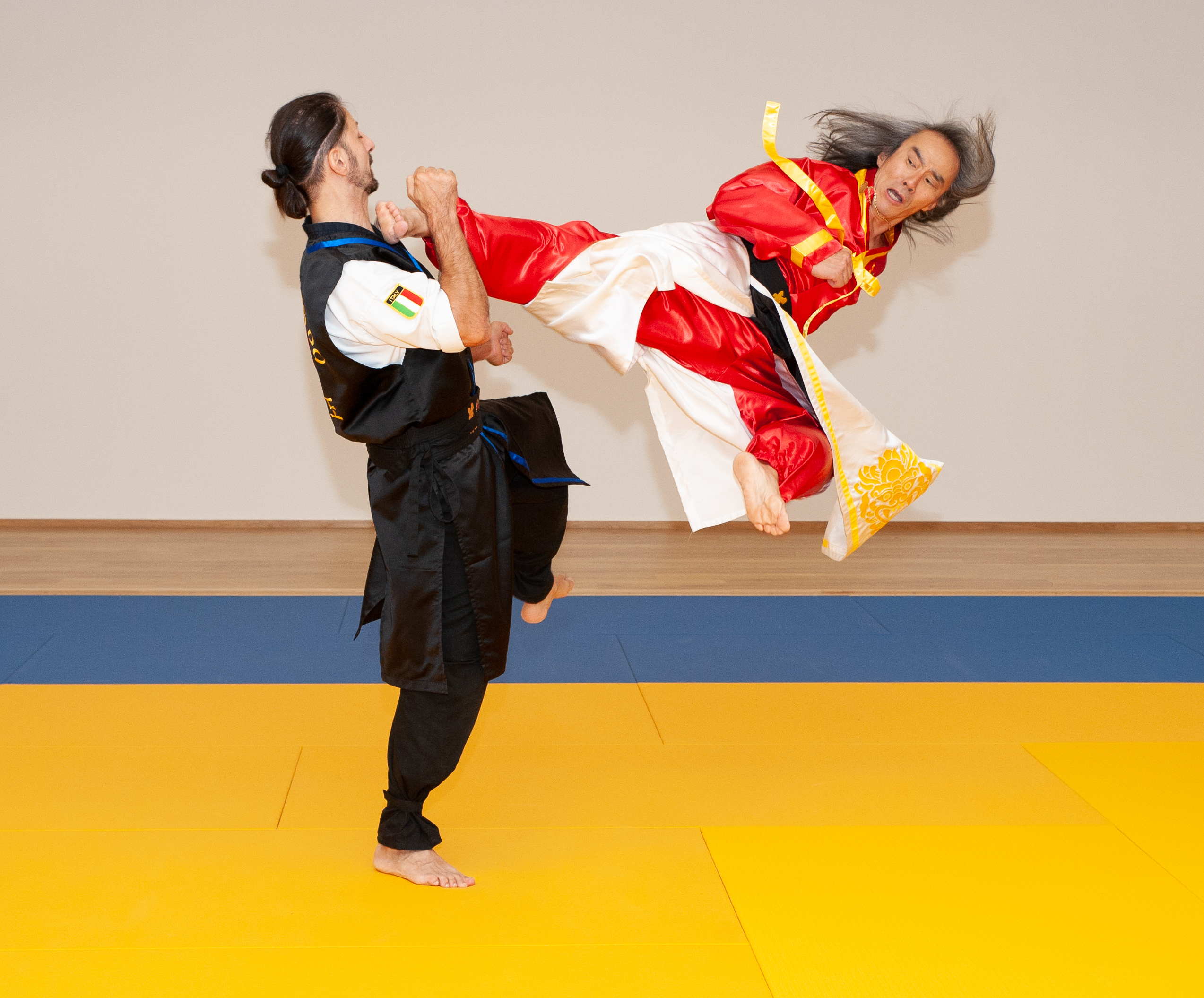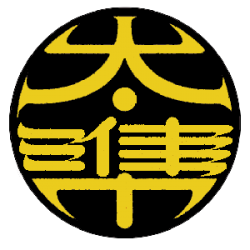Budo International Article
How To Achieve!
Budo International December 2022
By
Grandmaster Taejoon Lee
In the previous article, I have explained some of the problems and barriers which limits us in our ability to progress and excel, acquiring our optimal self, reaping the full benefits of our study and of what life can offer. Now, I will try to offer some ways you can achieve greater results and get the most out of life as well as your martial arts training.

Don’t be late, but if you’re late don’t rush!
“Who of you by worrying can add a single hour to your life?
Since you cannot do this very little thing, why do you worry about the rest?”
Luke 12:25
Avoiding tardiness requires just a bit more planning. If you plan out your day properly without trying to jam everything into one day, allowing yourself ample time to prepare and travel to the next appointment, then most likely you can avoid being tardy. However, as you are aware this is not so easy to do, and this is because most of us have never learned about time management. One of the first things during the first grade, on the first day of class, during my elementary years in Korea, we were assigned to make a pie chart of 24 hours in the day and schedule all our days down to the minute; when to wake up, when to wash and brush our teeth, when to have breakfast, when to go to school, when to come home, when to eat, when to study, when to play, when to sleep etc. as detailed as we can get.
Understanding the value and importance of time by knowing how to track and manage it is also a part of practicing mindfulness. This should be learned early on, but if you have not yet acquired the skill, then yes, you should create a daily calendar to know what you are doing every minute of your day. Like all things learned, it must start from the rudimentary foundation, then after a while you should gain a better sense of your perception of time compared to the reality of time; whether you perceive to always have more time or that you always have little time. In the beginning you must adhere strictly to the timetable, but as you gain a better sense of real time, then you can probably let go of such strict planning of the day. Whether you will succeed or fail in this endeavor will depend on how self-disciplined you are, which in either case you will have gained a better insight into your character, personality.
Regardless of whether you choose to take up such exercise in time management, if you do not know how to control it, it will control you. Most people act as though they have no control over their time and are powerless over it, which leads them to always use “not having enough time” as an excuse for all of their failures, mishaps, shortcomings, and unfulfilled promises. Every person in existence is given the same 24 hours in a day; what we do with it is entirely up to the individual. No person received more or less hours, no one received grace or extensions, no one gets credits or rebates of time. Even if we were given more hours in a day and had 26 hours or more, we would all still be in the same predicament. If we ever want to achieve or do anything, we must make the time for the things we want to do. Knowing whether something is better, more valuable than another in order to prioritize properly, that is entirely another matter.
However, you must know and understand that you will never be able to do everything and do them all well; that there is a price for everything and in order to do one thing, you must give up another. You must understand your capabilities and your limits. If the only source of water was rain and you went out to collect rainwater on a rainy day with a cup, that’s all you will carry back home no matter how much more water you desire. In order to collect more water, you must bring a bigger container to catch more water, but if you brought something which is too large, desiring to get as much as you can, it will be too heavy for you to pick up and carry back home. You must bring the right size container which you know you can carry when it is filled. This is the wisdom of experience and being prudent rather than being haughty and greedy.
Even when you have planned well, sometimes we are confronted with unforeseen events, acts of God, which we actually do not have any control over. Then, for exactly that reason we should not worry as God knows best! So, take it as it comes and don’t stress, but just deal with whatever takes place as that is beyond your scope and the benefit of such situation is unbeknownst to you. Whether you believe that it was an act of God or not; or it was really your fault, the fact still remains that you are late and there’s nothing you can do in that moment to change that. Therefore, the only option is to move forward. However, most people will exasperate and make worse the problem by getting upset, anxious, nervous, excited, angry, fearful, and self-destruct. And surely, with that frame of mind, you will have the worst class, the worst day of your life. This is how a self-perpetuating, self-fulfilling prophecy takes place and it is all your own doing.
Clear Your Mind Before Class
It is best to plan to arrive at the Dojang (House of the Way) a little earlier. Starting in the locker room, focus on dressing the uniform by doing it with reverence, thinking of all the past students, warriors (in our case 59 generations) who have worn the Dobok (Clothing of the Way) and by you wearing the same cloth that you are connected and part of something far greater than the self, letting go of all your daily troubles and concerns and transforming yourself into the warrior, the Hwarang. Finally, tying your belt, check to see that all aspects of your uniform is worn properly with every knot, folding of the sleeves, placement of the jacket is impeccable. Then collect your armor as though a warrior preparing for battle and enter the Mat Room (Dojang), the Battlefield. Take a deep bow paying respect to your art and kingdom (country), all the past warriors who have gone before you, humbling yourself to the knowledge which will be bestowed upon you, letting go completely of who you were, an accountant, a cook, a mother, a lawyer, now fully a warrior. Set your gear down quietly in the corner, then sit in a quiet moment of meditation and prayer.
Most people cannot and will not be able to clear their mind completely in meditation and achieve a state of “no mind” in only a few minutes. So, take the time to repeat a mantra, a prayer, whatever that suits you; something like “Give me strength to be at my best; courage to overcome my fears; wisdom to accept my faults; calmness and clarity of mind to learn to change for the better.” Then, with this mantra, this prayer, always be conscious of it and work to your best to practice it. If you do this, your martial art training experience will completely change!
Don’t Take It Lightly!
“The longest distance between two points is a short cut.”
You will only get back what you put into it. So, if you take it lightly and don’t put in much effort, then it is unreasonable and absurd to think that you will gain any benefit at all. You might be saying to yourself, “Yeah, but this is just a hobby.” Even a hobby requires time, energy, money, and effort, and if you don’t work at it, taking it more seriously, you will not improve. It doesn’t mean you need to eat, drink, sleep martial arts and have it consume all of your thoughts every moment of your waking hours, but it does mean that you need to pay attention, and take it like any other form of study by taking notes, reviewing your material before class, and practicing regularly at home (do homework!). Martial Art especially Hwa Rang Do is one of the most complex and physically demanding activities you can undertake and to think of it in the same category as aerobics, yoga, or some typical sport activity is a big mistake.
Therefore, like all things, the more you put in the more you will get back. There are no short cuts in life; don’t even think it!
Don’t forget that you’re learning how to fight!
Martial Arts is very different than any other common physical or sport activities for this one main reason, “IT’S ABOUT FIGHTING!” In reality, most of the sports we see today originate from fighting, from battle. Even the Olympics has its origins rooted in mythology as Zeus creating it, in memory of his battle with Kronos; the origin of the marathon is based on a messenger running from Athens to Sparta to seek help battling the Persians; even soccer has its origins from the Roman Empire as a military exercise known as Harpastum. In one way or another it is all connected to battle, fighting, competition in order to strengthen the soldiers to improve the odds of victory. It has only become hobby, exercise, and entertainment in the modern age. Thus, you can say that all the other sports are only a small partial aspect of martial arts.
The reality is that in martial arts training, the real goal is not physical fitness, confidence, weight loss, or even getting a black belt, it is how well you can fight. All the other benefits gained are fringe benefits, which are secondary. Therefore, the real question you need to be asking yourself when learning a martial art is “Can I defend myself properly against an attacker.” Unfortunately, this is too often forgotten and set aside with its practitioners mainly focusing on the fringe benefits. If we were attacked by aggressors on a daily basis, then this would be different. In today’s society it is rare that we are attacked and thank God that this is the case.
Some martial arts today focus primary on self-defense and fighting, but this for the common civilian is not practical nor sustainable as one cannot train daily for a fight that might never come and unless the skills are honed and practiced regularly it will render useless. For most people, they don’t want to get into a full-contact fighting match every time that they are in class, coming home with bumps, bruises, and cuts on a daily basis. Then what is the best way to perceive our training in the martial arts?
Even though a person is well trained physically, it does not guarantee their success in a real-life situation as they cannot ever know exactly how they will respond under such a stressful, life-threatening violent attack. Therefore, along with the proper defensive techniques one must learn how to remain calm, clear headed, by learning how to control their emotional reaction to fear and stress. The only way to achieve this is to take your training very seriously and use it as a means to overcome your personal weaknesses and fears by exposing your vulnerable self and learning to respond properly under extreme pressure, stress, and threat of harm. Of course, all this done in a safe environment with properly trained instructors. However, this is very difficult to achieve and not many martial arts teachers can successfully implement it. It is also the case that by taking it seriously and training properly, the fringe benefits you so desire can only be heightened and enhanced.
Then, the real question is how you as an induvial can make your martial art experience the most rewarding and beneficial to you as much as possible? If it is then about fighting, or fighting to survive a violent attack, how much do you think that you need to practice; is passing a belt test with moderate scores acceptable; can you afford not remembering your techniques; can you afford to miss classes when even daily practice is not enough to ensure survival; should you avoid critique from your teacher due to fear and embarrassment when it is paramount that you know the right technique which can mean life or death; can you afford to do your movements without any power or focus that can’t even be used to break through a plastic bag; can you be in class aimlessly, completely lost but never seek for help? Of course, the answer is obvious, but it is your choice! Choose wisely…
Study it!
Study is defined as: a state of contemplation; application of mental faculties to the acquisition of knowledge; careful and extended consideration. Yes! Absolutely! All the above must be applied well when learning anything properly, but more often than not, most students come to class mindlessly like they are coming to participate in an aerobics, dance, or yoga class to just sweat and enjoy an endorphin high. Martial arts, especially Hwa Rang Do requires the person to learn, memorize, and apply what they have learned with extreme control and accuracy. Hwa Rang Do has over 4,000 individual techniques as it is a true study, a school of thought, combat, and leadership and not just a means of fitness or practical self-defense. Like all things the more you study, practice, the better you become and the better you are at it the more you will enjoy it.
Thus, like all good students bring a notebook and take notes, then go home and review and practice daily. Of course, you don’t want to disrupt the class, so take a few minutes to write down what you have learned right after class when it is fresh in your mind, then take at least 30 minutes each day to practice and review your movements and techniques. The success of your application of the techniques you have learned depends on how well you have trained yourself to gain muscle memory, which allows you to remember the movements and perform them without conscious effort. However, you must first consciously command your body to incrementally perform the movements accurately, repeating the same correct movements in as many repetitions as it requires for you to perform them accurately with speed and power.
The way you will know that you have learned the move, the technique by muscle memory is if you can perform them without having to consciously command your body to perform each step, but rather execute the technique in one swift, fluid movement without hesitation. If you’re unable to do this, then you go back to one, doing them step by step correcting the mistakes and increasing repetition. It is critical that you increase how many times you do something right than how long you have trained. This is the same in life; it is not how long we live life, but how well we lived life by doing what is right.
Attention to the Details
“God is in the details”
Doing something right, even more so doing it beautifully requires that you know it thoroughly and that means you had to have paid attention to the details. There are many reasons why a person is not able to see the details, but only one which must be above all things in order to see things clearly, the desire to know the truth, to do right.
These are some of the reasons for not being able to see the details which I am sure many or all of you can identify with: not being mindful and being mindless; not being confident in your abilities; fear of criticism and rebuke; not desiring to stick or stand out; not having any expectations and just in it for the ride; being nervous and anxious; having performance anxiety; thinking that you know it already; thinking you don’t know anything; lacking self-esteem and belief in yourself; having a large ego; being overly macho; being overly timid and shy; desiring approval; trying too hard to please; wanting to be liked; afraid of being disliked; fixated on past negative experiences; delusions of grandeur; unrealistic expectations; over-estimation of one’s ability; overly critical of oneself; overly critical of others; and I can go on and on…
Anything else other than the desire to know and learn the truth is a hinderance and a distraction from the truth; and nothing matters more than the truth. In the process of arriving at this state of being, one must identify, address, confront and resolve all the reasons for not being able to see things clearly. This in fact is the true study, goal, and purpose of Hwa Rang Do.
Calmness
“There are fundamentally these fears:
The fear of failure, the fear of the unknown, the fear of rejection, and the fear of loss,
but having only One fear can rid of all fears – the fear of God.”
One must always practice being calm…
This is truly easier said than done and that is why it is a practice we must pursue. It does not just relate with being anxious or nervous, but it also has to do with excitement. It is about not overly reacting to anything, even moments of elation, victory, or accomplishments. However, for us as martial artists it is the practice of being calm under immense pressure and stress, to be able to think clearly out of a dire, critical situation with the potential threat of physical harm, or even death.
When we train, the reality is that we are learning how to effectively hurt, injure, maim, and even kill another person and in order to have the discipline, self-restraint, and proper control to not injure our training partner as well as to properly receive the offensive attacks to avoid getting injured requires extreme clarity of mind and calmness at heart. I am not talking about being calm through tricking the mind by dismissing and diminishing the extent of the threat and harm. One example comes to mind – an advice often given to people who are afraid of public speaking is to imagine the crowd of people in their underwear, which is aimed at reducing the anxiety by making the situation comical. This might work a few times, but it has done nothing to improve the self and did nothing to help overcome the fear, not to mention the demeaning of the people who are in the audience. You cannot imagine away your opponent or reduce the threat by thinking they are a cute teddy bear.
The only way to fight your way to victory is to be able to think clearly; and the only way to think clearly is to be calm; and the only way to be calm is to rid of fear. The only way to rid of the fear is to face and confront it, then overcome it by accepting the possible manifestation of the worst outcome of that fear, which typically is injury, pain, or death. This is a mindset which you must create in order to best deal with any form of stress or challenges that may come. However, when in the moment of stress, the best way to be calm is to breathe. Whenever you feel anxious or excited, take a few deep slow breaths with full inhalation and exhalation, which will help to calm you down. One breathing technique I have learned from my dear friend Dr. Andrew Weil, which has been proven to be very effective is the 4-7-8 breath: 4-counts breath in, 7-counts hold, 8-counts breathing out.
Ultimately, true calmness arises from a peace of mind and true serenity that comes from embracing and surrendering to God.
Eliminate Distractions
Part of being calm is to rid your mind of distractions and be present in the moment. You must clear your mind of all unnecessary thoughts as though erasing and wiping clean a chalkboard that is filled with cluttered writings. You cannot write over an existing chalkboard full of writings and expect it to be legible. It is the same with your mind and if you took the time at the beginning of class as I have prescribed then you should be better prepared.
However, even when we do all the preparatory work, often our mind wanders with bombardment of frivolous, unnecessary distractions often triggered by anxiety and fear. With such nonsense as can I really do this; what if I make a mistake; I don’t want to embarrass myself; what’s for dinner; I think he’s mad at me; the teacher doesn’t like me; do I look fat; I feel silly; what if I get hurt; oh, that looks scary; nope, I can’t do that, etc. Once you travel down this path and allow it to fester, there’s no turning back and you will fail, fall, worst yet get injured. This is when you must realize that you’re spiraling out of control and reign yourself back by taking a moment to exercise your breath.
Furthermore, as instructors you should not have any parents or spectators watching the class. I realize that many schools allow for this, but I recommend against it. This also means you cannot have people coming to check out the class before they join. The primary focus of your class is the well-being of your students, and you must create the best condition for them to flourish. I make sure that in our schools that there are no spectators and if there is, then they are out of sight from the students. Also, for any trial students, the only way for them to check out our class is by participating in the class and never can they just some to watch a class; no looky-loos!
Continued on February 2023 Issue…
|
World Hwa Rang Do® Association Newsletter: Issue #9 - December, 2022 |






